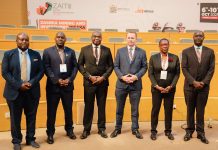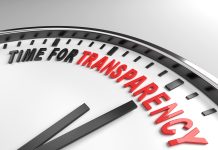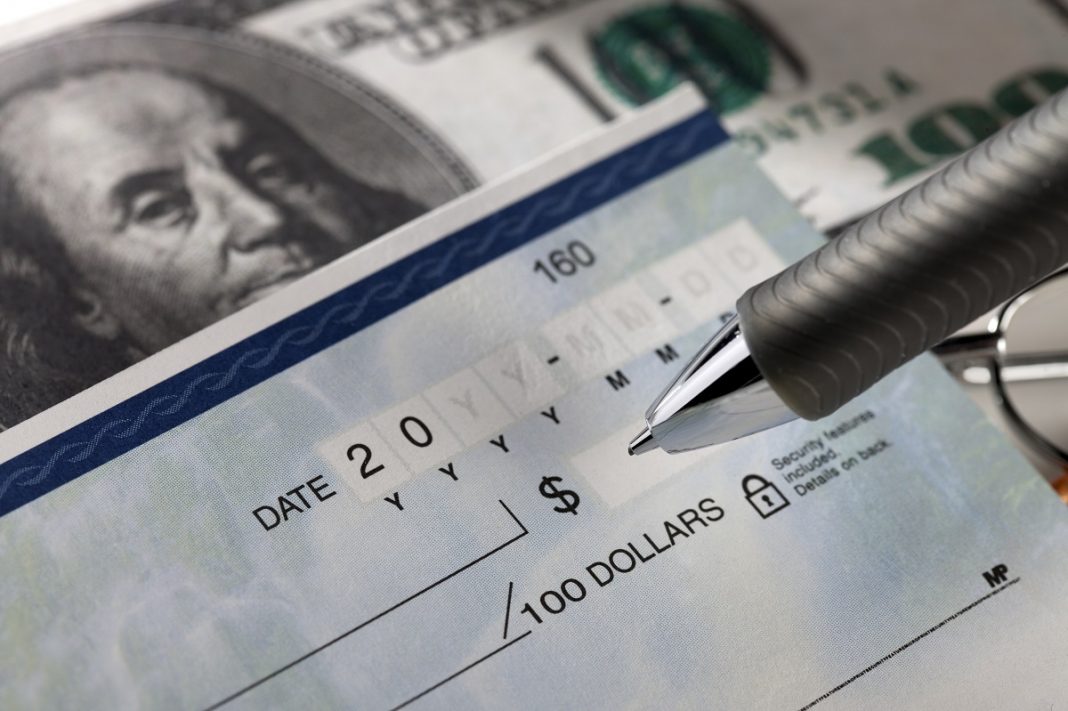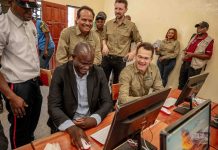On 29 April, the World Bank, the African Development Bank, along with the United States of America and the United Kingdom, announced the provision of K2.7 billion in financial support to the Government of Zambia in the fight against the COVID-19 pandemic.
Mining For Zambia spoke to economist Professor Oliver Saasa about how Zambia’s government would be best off allocating these bilateral and multilateral resources.
Is the K2.7 billion that is coming in enough?
It’s definitely not enough. We’re talking about approximately $150 million dollars. I can’t see anything less than half a billion dollars as a suitable quantum. The country is already very fiscally stressed, and this pandemic has worsened a lot of things. One hopes it’s only the first tranche of support for Zambia.
How should Zambia allocate the funds?
Our health system is still dire. We don’t have most of the things that are required to manage COVID-19 patients, such as ventilators and trained personnel. So, clearly this is a first priority.
But, one also needs to think about COVID-19 beyond the health challenges, and what it is doing in terms of stressing economies — especially economies like Zambia’s that were already fiscally stressed before the pandemic set in. We’re talking about companies closing down because employees cannot freely go to work, and companies without a market for their products or services. There has been a significant reduction in demand across sectors — even in food sales — and all kinds of companies are slowing down or closing down. This calls for a number of measures that traditionally you would not expect to allocate bilateral or multilateral money to.
In my view, a substantial portion of this money must be used to find a way, through fiscal stimulus, to ensure that companies — small-scale, medium-scale, and including large-scale — survive post-COVID-19.
What are some of the ways that Government could ensure the survival of the private sector?
There are a number of things; some are more direct, and some less so. If we talk about fiscal stimulus for example, the government may have to temporarily forgo collection of tax for the most stressed small-scale operators in the sub-sectors that are badly affected by the effects of the pandemic. This could entail allowing tax payments to be deferred and, thus, help in building up the stressed companies’ cashflow reserves during the immediate crisis period. Certain pieces of legislation have already been revised or suspended [as of 27 April] to give companies some temporary relief — in the form of the suspension of penalties for submitting late tax returns, for example. This is highly commendable. Nevertheless, much more is needed.
Money could be made available for directly supporting companies, especially small to medium scale companies. There may be times when, in order to ensure companies’ survival and keep their labour force in place — or when a company is vital for the economy — a subsidy or a soft loan is provided by Government so companies can continue paying workers, rather than effect redundancies or close altogether.
Might this kind of support be extended to mining houses?
I think the challenges for the mines are slightly different. They are multinational companies and they are not asking for free money, even though they are facing inevitable, major slow-downs. These are companies that are more interested in a fiscal regime that is enabling; a fiscal regime that is not seen as punitive; a fiscal regime where the tax levels are not too high; a fiscal regime where the concessions are a little more palatable. This is a fiscal regime where VAT refunds must be made, especially now, because Zambia needs the mines to remain operational. That is actually what the mines are asking for, they are not asking for gifts.
Do you see this money being used to pay VAT refunds — in line with the OECD’s COVID-19 response guidelines — which countries such as Kenya and South Africa have done?
The mines are owed somewhere in the region of $1.2 billion in VAT refunds, but refunds do not only apply only to the mining sector. Just a few days ago, I was talking to a representative from an exporters’ association, who indicated that [many] Zambian export companies have also been owed VAT refunds for more than five years. The sad part is that, for Government to consider making a company’s VAT refund, the Zambian Revenue Authority (ZRA) must firstly audit its accounts — and ZRA are not currently auditing accounts going back a certain number of years.
The government’s failure to pay VAT refunds is negatively affecting many companies. In terms of considering whether using part of the K2.7 billion to pay VAT refunds is prudential, I haven’t looked at the figures yet [and don’t know how feasible it is].
If it were feasible, would paying VAT refunds be a sensible way of allocating the funds?
It could certainly be justified if there is enough money. We’re not even talking about a grant; we’re talking about an entitlement — something that is already owed to them, and companies need it desperately now.
This would be the obvious way to support the mining sector, which we must do. Firstly, the mines are a major employer. In the case of Mopani Copper Mines, we’re talking about 11,000 people, or thereabouts. Cumulatively, the mines account for a significant portion of the labour force. Secondly, they are a major contributor to Foreign Exchange; 70-80% of Foreign Exchange comes from the mines. Therefore, a collapsing mining sector may have a very serious ripple effect across the board — including negative effects on government finances, and on the Exchange Rate, because the US dollar mainly comes into Zambia from the mines. You’d see a lot of negative ripple effects.
“Using the funds to pay VAT refunds could certainly be justified if there is enough money. We’re not even talking about a grant; we’re talking about an entitlement — something that is already owed to them, and companies need it desperately now.”
One of the things that many companies in different sectors have recently requested (and I’m aware of companies that have had these requests rejected as recently as one month ago), is that Government offset their tax obligations against what companies are owed. The letter of response that I have seen to one particular company says: ‘No. Wait until the Minister of Finance gives you the refund owed’. We are talking about a situation, in the context of COVID-19, where exporters are really stretched financially, the planes are grounded, and demand from the European market is going down the drain. When a company asks Government to offset taxes against money that they owe and the Government says ‘No,’ that tells you how serious the problem is now for companies.
It also suggests that Government is in serious financial trouble.
Yes, it tells you that Government coffers are very, very limited at the moment. The Honourable Minister of Finance has never hidden this reality. If you look at our fiscal deficit, it’s high, hovering around 10%. On the expenditure side, salaries and debt servicing account for about 90% of Government revenue. So, you are really talking about a heavily stressed country, before you add the coronavirus.
But, knowing that Government owes the private sector money, I think it makes economic sense for them to forgo tax collection to offset what they owe. It makes economic sense because, when companies stay afloat after COVID, they will continue to pay tax, and that’s how you maintain Government revenue. But if you choke a company, you lose your tax base — and you lose labour, which is extremely politically sensitive too.
We must hope that with a bit of fiscal space, once money becomes available, these are the sorts of measures that Government will introduce. Ultimately, there is no economy that can survive without securing the continuation of the private sector, and its continued productivity, profitability, and ability to pay tax. It’s just logical.
As you’ve mentioned, debt repayments are swallowing up an increasingly large proportion of Government revenue. Surely this money should be put towards ensuring the nation’s survival through this crisis period?
Precisely. At the moment, debt servicing accounts for more than 40% of government revenue. If a portion of debt repayment is suspended, there will be some money in the Government coffers for paying VAT refunds.
Beyond the K2.7 billion, we also need to explore getting a moratorium on debt repayments, which the IMF and the World Bank [in a recent joint statement] are urging G20 countries to consider. Suspension of debt payments — especially from China — would of course mean giving the Zambian government fiscal space to do something.

Many of the 138 countries with loans linked to China’s Belt and Road trade initiative recently submitted a wave of applications for debt relief, and much of Zambia’s debt is with China. Do you think global pressure on China is mounting to the extent that it will concede?
Yes, the pressure has mounted I think, and one hopes that China will respond positively to the IMF and the World Bank’s appeal. I also understand that China is indicating that countries like Zambia have to give them some security — that, in order for our debt repayments to be suspended, we must provide some collateral. I’m not privy to any of the details but, if it’s true, they may be talking about security by holding onto certain assets [such as Lusaka’s Chinese-built airport.]
“It makes economic sense for Government to forgo tax collection to offset what they owe because, when companies stay afloat after COVID, they will continue to pay tax, and that’s how you maintain Government revenue.”
Usually an airport would be the last thing you would want to consider as collateral. It’s a matter of national security, and sovereign pride too. But desperate situations call for desperate measures. One hopes it doesn’t come to that.
If Zambia can reschedule some of its debt, especially Chinese debt, there will be sufficient headroom for Government to be able to use the retained money for other things including meeting some of their obligations, such as VAT refunds — not only for the mines, but for everybody that, right now, is stressed as a result of Government owing them money.
A few weeks ago, Government revealed that they were seeking professional advice on restructuring their debt which, one imagines, would include their debt owed to China.
Yes, the debt that Government intends to restructure includes Chinese debt, but also Eurobonds. The government is already receiving bids from companies that can assist, including competent international companies. The most difficult debt to renegotiate may be the Eurobonds. It involves negotiating with each of the individual companies that subscribed to the Eurobonds after they listed. Selling off your debt to someone else is not easy. It will be expensive, but it may be the only solution because in mid-2022 the first Eurobond — a $750 million bond — is due. Zambia doesn’t have that sort of money. Refinancing is the only option.
Zambia has been slow off the mark in terms of introducing measures to address the economic fallout from COVID-19, with only very limited offers of support to business when compared to its peers and neighbours. Might this now change with the announcement of K2.7 billion in financial support?
Ones hopes so. In terms of the funds coming, I think what is important is that there is now fiscal space to start thinking seriously about extending some of the incentives that one has seen in the OECD guidelines. I think that room for manoeuvre was restricted before, but now with this money coming in, there must be some space. Zambia really needs some of those incentives [including tax deferments and expedited VAT repayments], similar to what Kenya has done. There’s no reason why we shouldn’t implement them. We cannot afford to see companies collapsing, we need a functioning economy after COVID.
See also: Four things that countries in Africa are doing to support their economies


























